Sudan: A warning of exacerbation of acute malnutrition among children in Darfur .. International Criminal: There are reasons for the belief that war crimes are still committed in the region

- Europe and Arabs
- Friday , 11 July 2025 11:26 AM GMT
Darfur - New York: Europe and Arabs
New, disturbing data, published by UNICEF, revealed today, Friday, a significant increase in the number of children with severe severe malnutrition in the five states of Darfur by 46% during the first five months of this year.
According to the latest surveys that covered the period until May 2025, more than 40,000 children were entered for treatment in North Darfur alone, which is twice the number recorded in the same period last year.
In 9 out of 13 regions in Darfur, the acute malnutrition rate exceeded the emergency levels set by the World Health Organization. According to the United Nations daily news bulletin today, Friday
In this context, Shieldon, a UNICEF representative in Sudan, warned that children in Darfur "suffer from hunger due to the conflict, and are deprived of the assistance that can save them."
"Even before the drought season reaches its climax, these numbers are dangerous, and it is likely to worsen without taking quick humanitarian measures. It is the moment of truth; the life of children depends on whether the world will choose to move or ignore the matter."
A situation that reflects the reality of Sudan
UNICEF reported that the situation is worrying to the same extent in other parts of the country. Accelerated malnutrition increased by more than 70% in North Kordofan, by 174% in the state of Khartoum, with an amazing rate of 683% in the state of the island. However, UNICEF indicated that the increase in acceptance rates for treatment on the island and Khartoum probably reflects an improvement in the security situation and the possibility of humanitarian aid.
As Sudan now enters the peak of the drought season, the risk of child mortality is rapidly increasing in areas that are already approaching the thresholds of starvation. UNICEF said that cholera, measles and the collapse of health services are all factors that increase the crisis, which exposes the weak children to greater risk.
The conflict intensified in North Darfur
Since April, the conflict has intensified in North Darfur - especially around Al -Fasher and Zamzam camp, where entire neighborhoods have been trapped, hospitals were bombed and the roads were closed, while aid convoys face looting and attacks, and human access is now almost non -existent.
UNICEF stated that it had managed to deliver a batch of supplies to El -Fasher early this year, but the insecurity prevented more. The organization warned that the medical food supplies for use in Al -Fasher have now exhausted, and that the health facilities in Zamzam and its surroundings have closed their doors. She said that the lack of water and poor sanitation exacerbates the risk of cholera and other deadly diseases.
As a result of this situation, approximately 400,000 people fled from Zamzam camp, and many walked 70 km on foot to reach a long area.
UNICEF said that she is doing her best with partners to save lives - from treating wounded and malnutrition, to drilling wells and distributing food - "However, violence still generates new needs that exceed the organization's ability to fulfill it."
urgency
UNICEF called for all parties, urgently, by facilitating the arrival of humanitarian aid quickly and safely and without obstacles to the affected population in Darfur and Kordofan, and called for renewing diplomatic pressure to stop hostilities to allow life -saving aid to children.
It also called on the international community to fully finance the humanitarian response and ensure that supply chains continue for therapeutic foods and medical supplies. The United Nations Agency said it needs an additional $ 200 million this year to support and expand basic nutrition services, including severe acute malnutrition treatment and the treatment of therapeutic foods.
It is noteworthy that severe severe malnutrition, also known as severe wasting, is the most deadly malnutrition, as children with it are severely vulnerable to complications that threaten their lives, and suffer from a high mortality rate if they do not receive adequate or appropriate care.
In the same file, the Deputy Prosecutor of the International Criminal Court, Nizhim Khan, said that the Prosecutor's Office has reasonable reasons for the belief that war crimes and crimes against humanity were committed, and are still committed in Darfur
In front of the UN Security Council, Al -Khums, the situation in the Darfur region of Sudan, Khan said: "We meet at a time when it may seem difficult to find the appropriate words to describe the depth of suffering in Darfur."
She warned that things might get worse in Darfur, adding that the Prosecutor's Office closely followed the reports received in recent weeks on the current situation in North Darfur after the attacks by the Rapid Support Forces and their groups on their capital Al -Fasher, and the Zamzam and Abu Shuk camp for the displaced.
She pointed out that the office reached its conclusions based on extensive activities during the last period, as documentary evidence, certificates and digital evidence collected and analyzed the office were made. Khan said: "We will not back down until the completed justice is achieved in a way that fairly the rights of the affected and affect the behavior of the perpetrators on the ground," Khan said.
She referred to the previous efforts to achieve justice to Davor's victims, as a case was filed against Ali Muhammad Ali Abdel Rahman, also known as "Ali Kushib", expressing her hope that the upcoming decision will be submitted in his trial, and it is expected to be issued in the second half of this year, "an important example of what can be achieved when we work together in this joint effort."
The suffering of women and children
The Deputy Prosecutor of the International Criminal Court expressed great concern about the widespread suffering of women and children and their victims in this conflict, adding that "our investigations will not be completed only after we can listen to the reality experienced by the women of Darfur today and document it before the court."
She explained that the activities of the office that will be implemented during the next report period will enhance the collective ability to document gender -based crimes in Darfur. But she warned that "working to protect and support Darfur women can only be achieved through teamwork."
The cooperation of the government of Sudan
The International Criminal Court official expressed her pleasure about more reasons for optimism regarding the cooperation of the government of Sudan.
She pointed out that the Prosecutor's Office conducted more meetings with the Sudanese government, especially through a visit to Port Sudan, which was pleased by the government of Sudan, which allowed the identification and communication of additional additional witnesses with them. She stated that another visit is scheduled to be made during the coming period.
Khan said: "We must work together, seriously and focus, to ensure the arrest of individuals who have been issued orders from the International Criminal Court currently present in Sudan, including Omar Hassan Ahmed Al -Bashir, Ahmed Haroun and Abdel Rahim Mohamed Hussein."
The need for international support to achieve justice and prevent violence
The Deputy Prosecutor of the International Criminal Court said that the progress that is made, and the work they do, could never be sufficient to compare the degree and size of the suffering that occurs in Darfur now.
But it reassured the Darfur societies in Sudan, and at the global level, "that we, with their partnership, are speeding up our work to achieve justice in the International Criminal Court, for the crimes that are currently committed."
She referred to some obstacles and the low resources of the Prosecutor's office compared to the size of allegations assigned to investigate them, calling on members of the Council to now support than ever.
She said: "With your support, we can not only achieve justice that is needed for what is happening, but also, and most importantly, preventing the cycle of violence that appears endlessly, which is nourished by a deep feeling of impunity between those who cause pain at this moment."


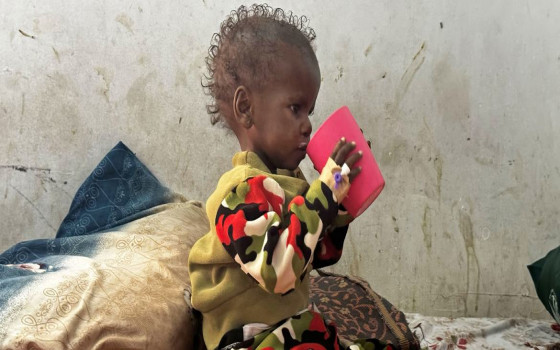
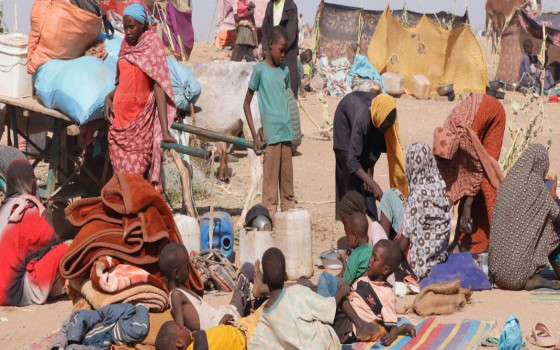
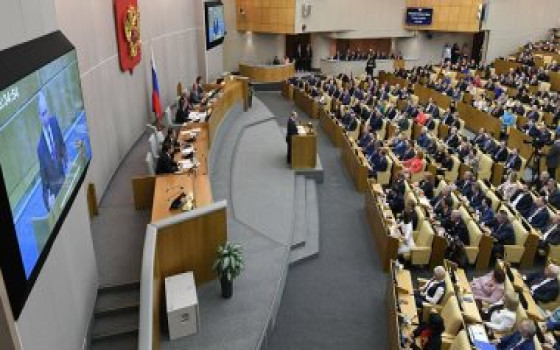

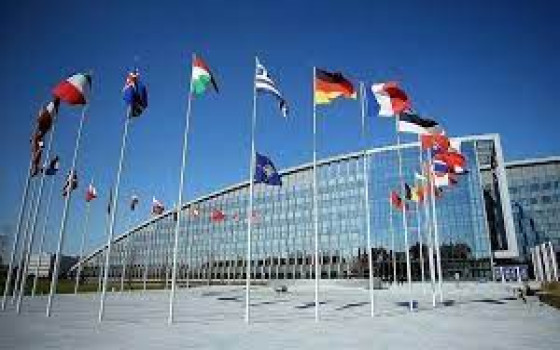
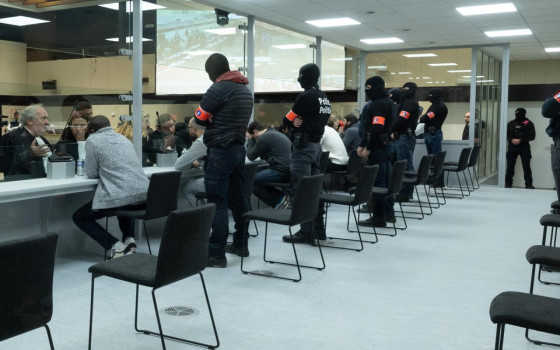

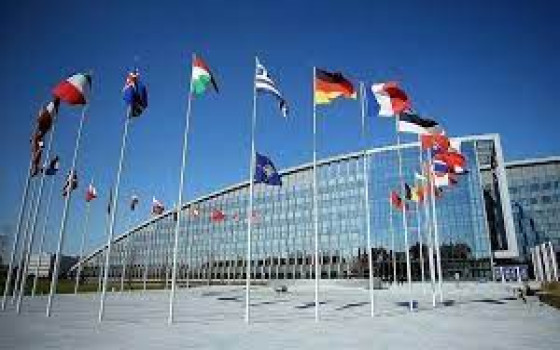
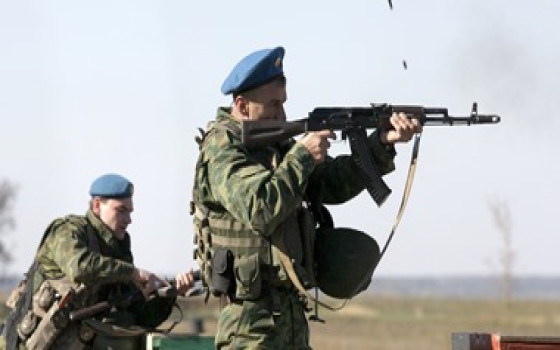
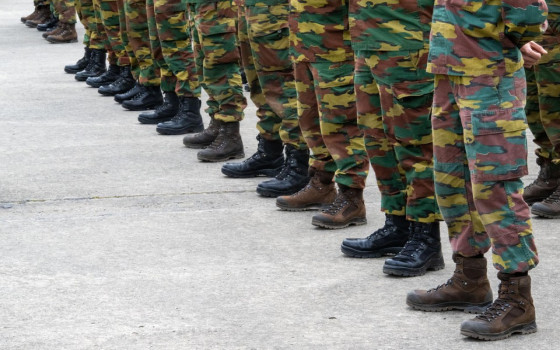

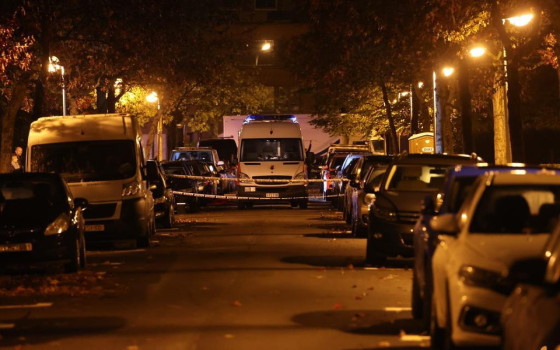
No Comments Found